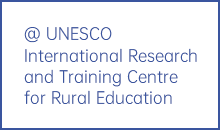From 15 to 16 June 2022, the China-Africa Deans of Education Forum was successfully held online under the theme “Reimagine Teacher Education Towards a Shared Future”. During the two-day forum, officials, deans and experts from the Ministry of Education of the People’s Republic of China, six major normal universities, and universities and organisations in 12 African countries gathered online. They contributed valuable expertise in development path, policy and practice of teacher education, and jointly drew a blueprint for cooperation between Chinese and African teacher education institutions.
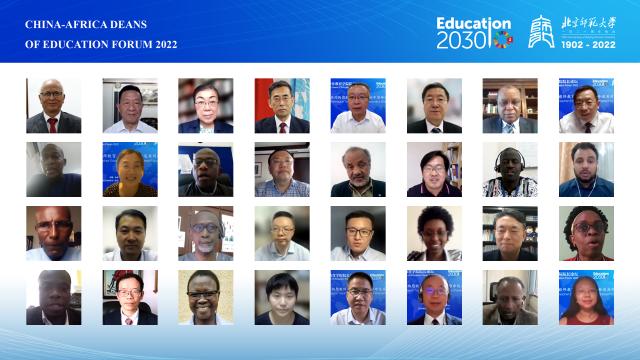
A group photo of invited speakers and moderators
The Education 2030 Framework for Action emphasises that teachers are the key to achieving the goals of Education 2030 agenda. The Continental Education Strategy for Africa (2016-2025) (CESA) includes “revitalise the teaching profession to ensure quality and relevance at all levels of education” as the first of its 12 strategic objectives, in order to set up a “qualitative system of education and training to provide the African continent with efficient human resources adapted to African core values and therefore capable of achieving the vision and ambitions of the African Union”. The forum was hosted by Beijing Normal University, and organised by the Faculty of Education (FOE) at Beijing Normal University, UNESCO International Institute for Capacity Building in Africa (IICBA) and the UNESCO International Research and Training Centre for Rural Education (INRULED). More than 1,400 participants, including education scholars, officials of international organisations, teachers and students from China, Nigeria, Ethiopia, Namibia, Uganda, Kenya, Côte d’Ivoire and other countries attended the forum online.
Mr. Qin Changwei, Secretary-General of the Chinese National Commission for UNESCO, H.E. Prof. Mohamed Belhocine, Commissioner for Education, Science, Technology and Innovation (ESTI), Mr. Du Yue, the African Department of Priority Africa and External Relations of UNESCO, Dr. Yumiko Yokozeki, Director of IICBA, and Prof. Zhou Zuoyu, Vice President of Beijing Normal University, opened the forum by welcoming participants from all over China, Africa and internationally. The session was moderated by Professor Zhu Xudong, Dean of the FOE of Beijing Normal University.
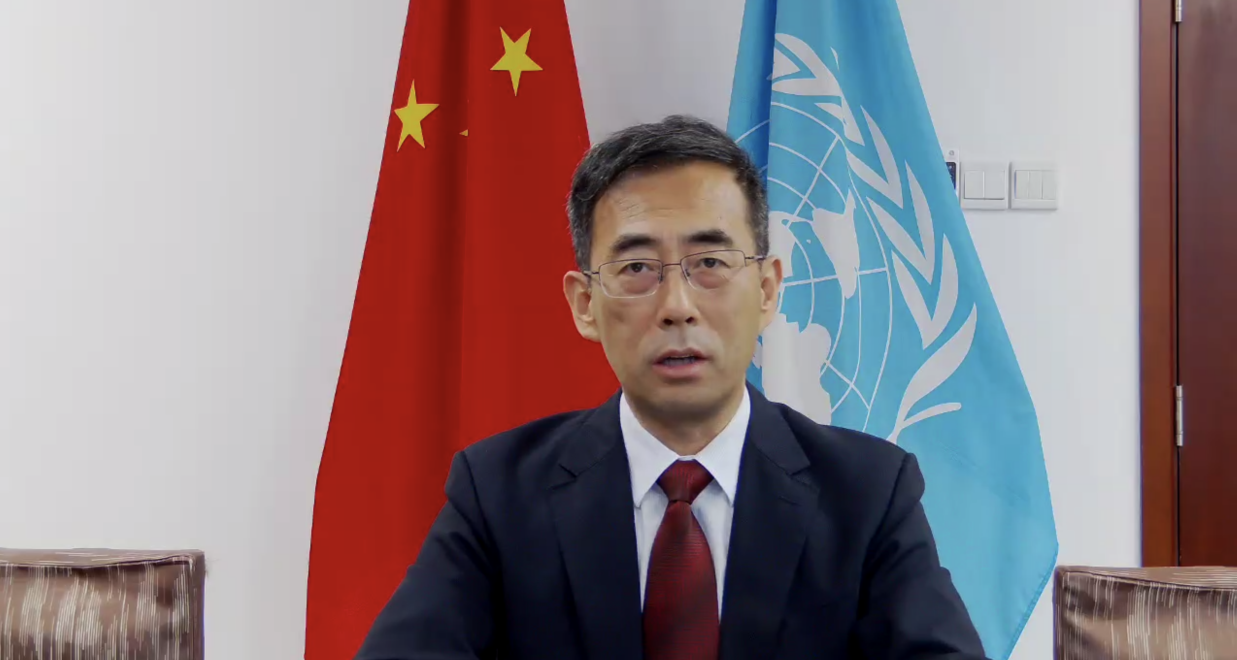
Mr. Qin Changwei, Secretary-General of the Chinese National Commission for UNESCO, making his opening remarks
Mr. Qin Changwei, Secretary-General of the Chinese National Commission for UNESCO, delivered his opening remarks in which he spoke on China’s strong willingness to support Africa’s education development. Based on the needs of African countries, China would share its experience in education development, help train professionals for African countries, and provide educational support for the rise of Africa.
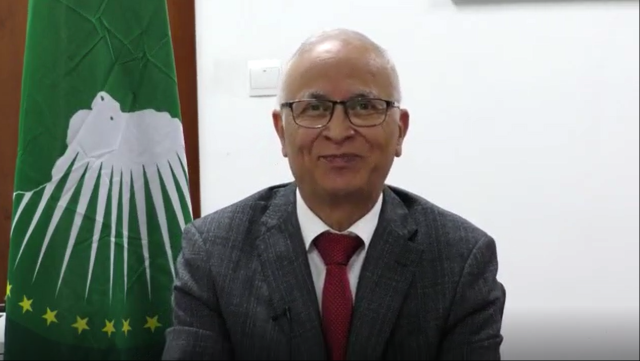
H.E. Prof. Mohamed Belhocine, Commissioner for ESTI, delivering a video address at the opening session
H.E. Prof. Mohamed Belhocine, Commissioner for ESTI, mentioned that the convening of this forum is a positive response to The Continental Education Strategy for Africa (2016-2025) (CESA). He sincerely wished that this forum and the follow-up cooperation would help achieve this strategic goal. The two sides would jointly construct the future of teacher education in China and Africa, and build an integrated and prosperous Africa.
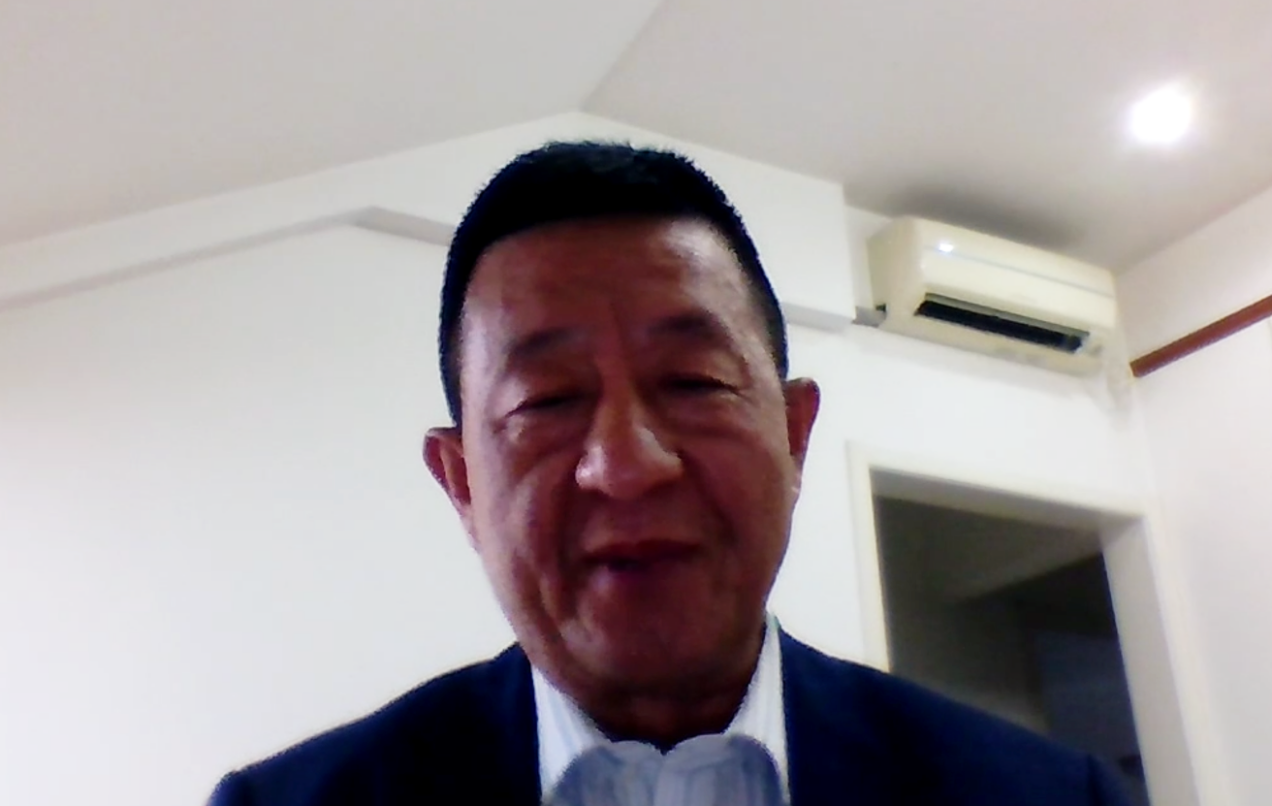
Mr. Du Yue, the African Department of Priority Africa and External Relations of UNESCO, making his opening remarks
Mr. Du Yue, from the African Department of Priority Africa and External Relations of UNESCO, pointed out that China and Africa should seize new opportunities for cooperation jointly, make full use of the resources from all parties, strengthen the connectivity of various regions, and help Africa unleash its development potential.
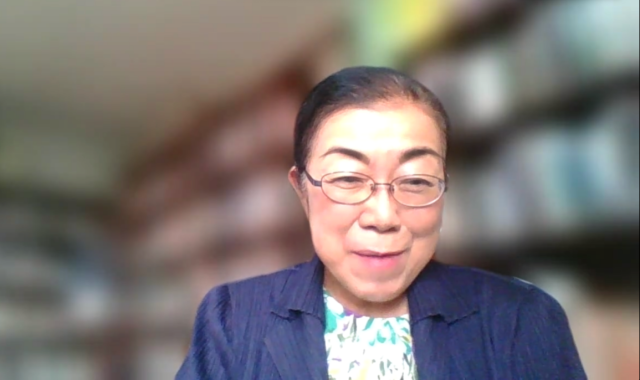
Dr. Yumiko Yokozeki, Director of IICBA, making her opening remarks
Dr. Yumiko Yokozeki, Director of IICBA, hoped the participating experts could learn from each other’s experience, seek win-win cooperation, and take real action to build an even stronger China-Africa community with a shared future.
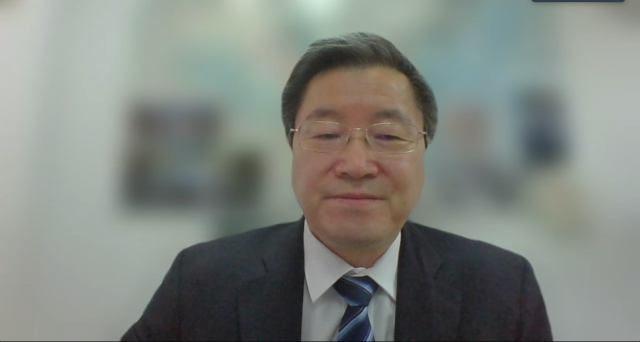
Prof. Zhou Zuoyu, Vice President of Beijing Normal University, making his opening remarks
Prof. Zhou Zuoyu, Vice President of Beijing Normal University, emphasised that the China-Africa Deans of Education Forum would help promote the realisation of sustainable development goals in China and Africa, deepen the longstanding friendship between China and Africa as well as that of their people’s, and contribute to the vision of building a China-Africa community with a shared future.
Four high-level officials and experts from China and Africa delivered keynote speeches under the forum’s theme, which was presided over by Prof. Zeng Xiaodong, Executive Director of INRULED.
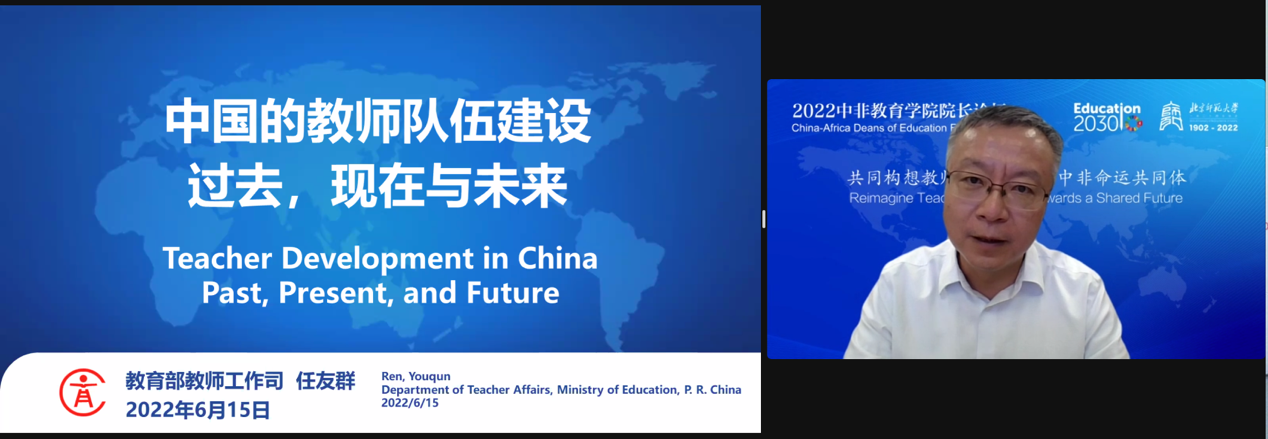
Prof. Ren Youqun, Director-General of the Department of Teacher Education of China’s Ministry of Education, delivering his keynote presentation
Prof. Ren Youqun, Director-General, Department of Teacher Education, Ministry of Education of the People’s Republic of China, delivered a keynote presentation titled “Teacher Development in China: Past, Present and Future”, in which he briefly reviewed the development of teacher education institutions in China, and shared China’s policies, practice and experience on preparing qualified teachers, facilitating teacher professional development, and motivating teachers and guaranteeing their rights. He pointed out that China had been implementing the Basic Education Teacher Workforce Development Project, which would strengthen the construction of high-rank teachers’ colleges and universities, promote the preparation of high-level teachers and implement the Pilot Programme of High-profile Teachers and Principals. Meanwhile, the Ministry would guarantee educational equity by training more teachers for underdeveloped areas in China.
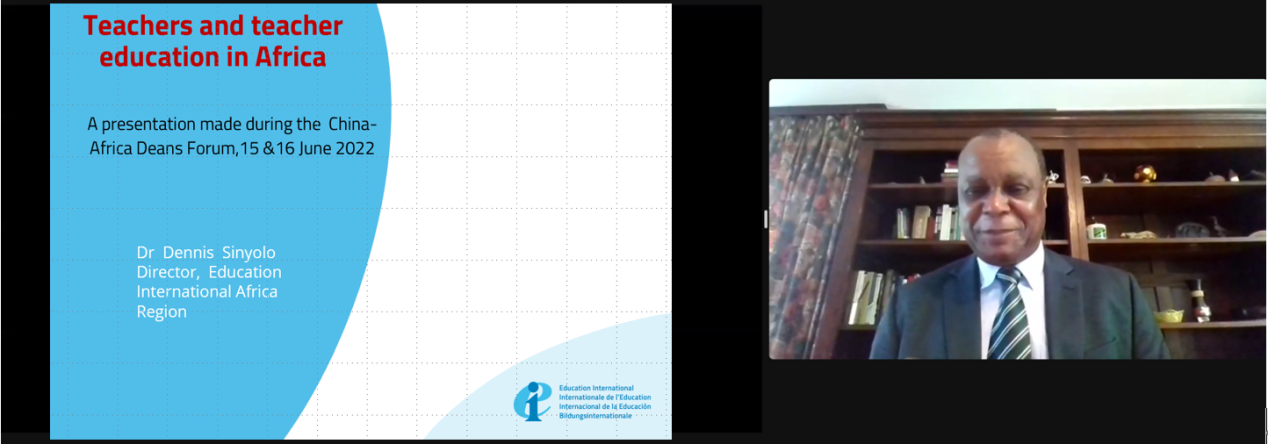
Dr. Dennis Sinyolo, Chief Regional Coordinator of Education International (Africa), delivering his keynote presentation
Dr. Dennis Sinyolo, Chief Regional Coordinator of Education International (Africa), introduced “Teachers and Teacher Education in Africa”. He firstly explored the characteristics of teaching as a profession, and then used extensive data illustrating the challenge on teachers’ shortage and unpreparedness in Africa. He mentioned that the Africa regional and global commitments to teachers were opportunities to bridge the gap. He concluded his presentation by suggesting recommendations to higher education institutions and national governments on teacher development.
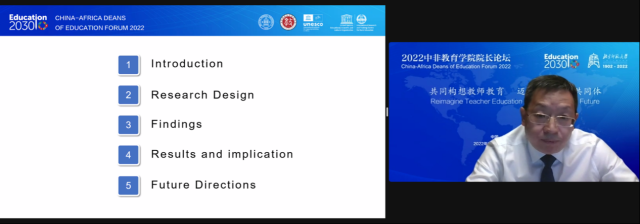
Prof. Zhu Xudong, Dean of Faculty of Education at Beijing Normal University, delivering his keynote presentation
Prof. Zhu Xudong, Dean of FOE at Beijing Normal University, gave a presentation on “Rethinking the Comparative Advantages of Chinese Teacher Education Textbooks on the Basis of Content Analysis Evidence from the United States”. He pointed out that it is necessary to strengthen the national and international exchanges and cooperation on teacher education, conduct in-depth discussions on the training objectives, courses and other topics of teacher education, promote research on the knowledge system of teacher education textbooks, and build a more equitable, harmonious and inclusive future for education.

Prof. Josiah Ajiboye, President of Africa Federation for Teaching Regulatory Authorities (AFTRA), delivering his keynote presentation
Prof. Josiah Ajiboye, President of Africa Federation for Teaching Regulatory Authorities (AFTRA) and Chief Executive of Teachers Registration Council of Nigeria (TRCN), Nigeria, gave his speech on “Building Teacher Education Institutes in Africa”, introducing the development of teacher education institutions in Africa. He pointed out the challenges faced by teacher education institutions in various regions in Africa in terms of the quantity, enrolments, and support for the long-term development of teachers. He then expressed his willingness to promote transnational teacher mobility and enhance academic exchanges between teacher education institutions, which is expected to empower teachers and achieve high-quality education development in China and Africa.
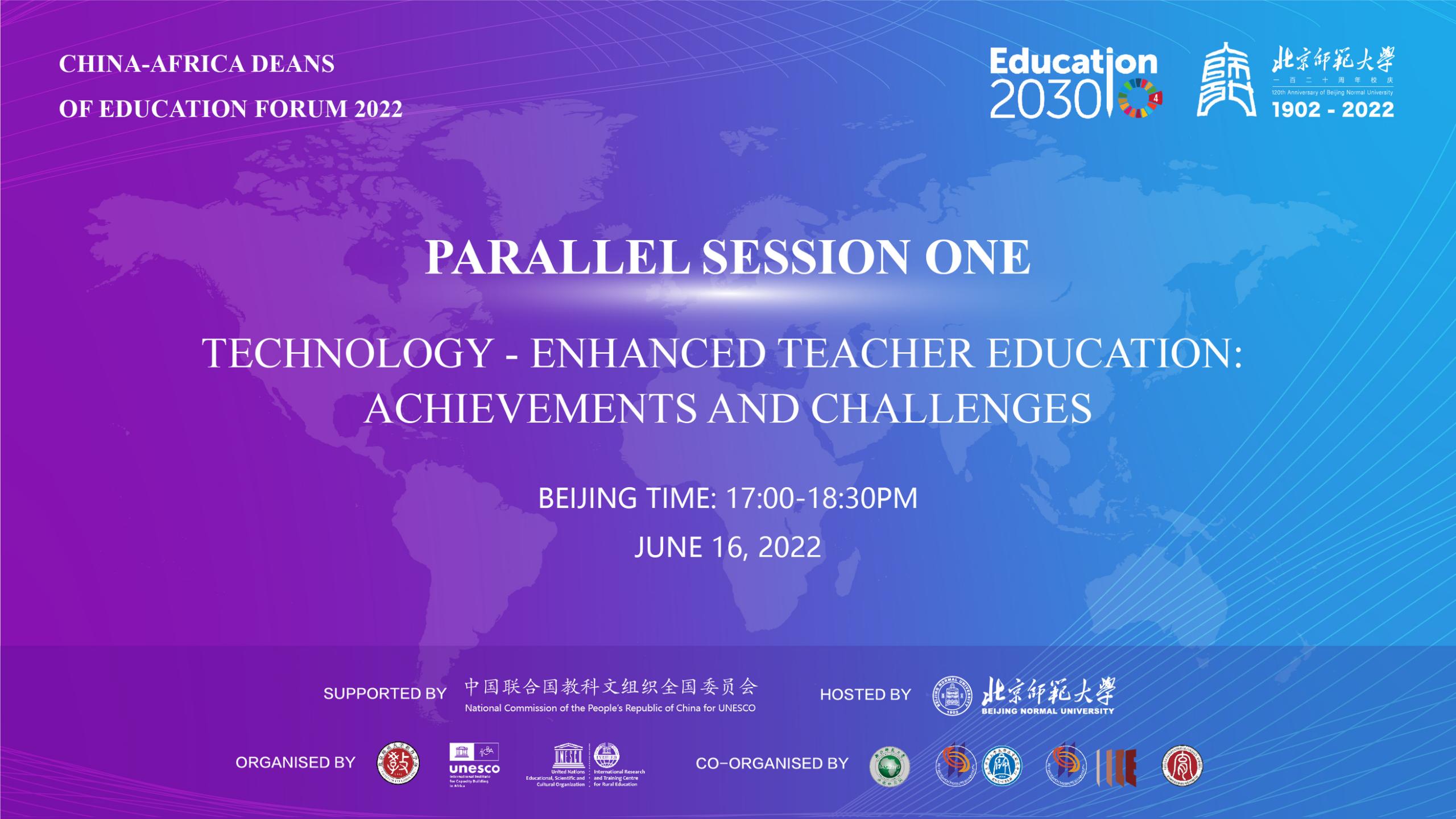
Three Parallel Sessions were held in the afternoon of 16 June. Mr. Saliou Sall, Senior Programme Coordinator of IICBA, hosted the first parallel session, under the theme of “Technology-enhanced Teacher Education: Achievements and Challenges”. Prof. Xia Lixin, Vice President of Central China Normal University (CCNU) and Dean of Faculty of Artificial Intelligence in Education at CCNU, stressed that the roles and competencies of future teachers would change significantly, with the rapid development of technologies such as artificial intelligence, and we should build a practice-oriented teacher education curriculum system and train high-level teachers. Mr. Maurice Nkusi, Acting Director of the Teaching and Learning Unit of Namibia University of Science and Technology, specified that it is necessary to strengthen the technology infrastructures in universities to ensure education transformation through digital transformation. Dr. Zeng Haijun, Vice Dean of the Smart Learning Institute (SLI) at Beijing Normal University, shared SLI’s practices and experience in implementing education informatisation leadership training for rural principals in underdeveloped areas in China. Dr. Temechegn Engida, Programme Officer at IICBA, stressed that while developing teachers’ teaching skills, their digital skills should also be developed.
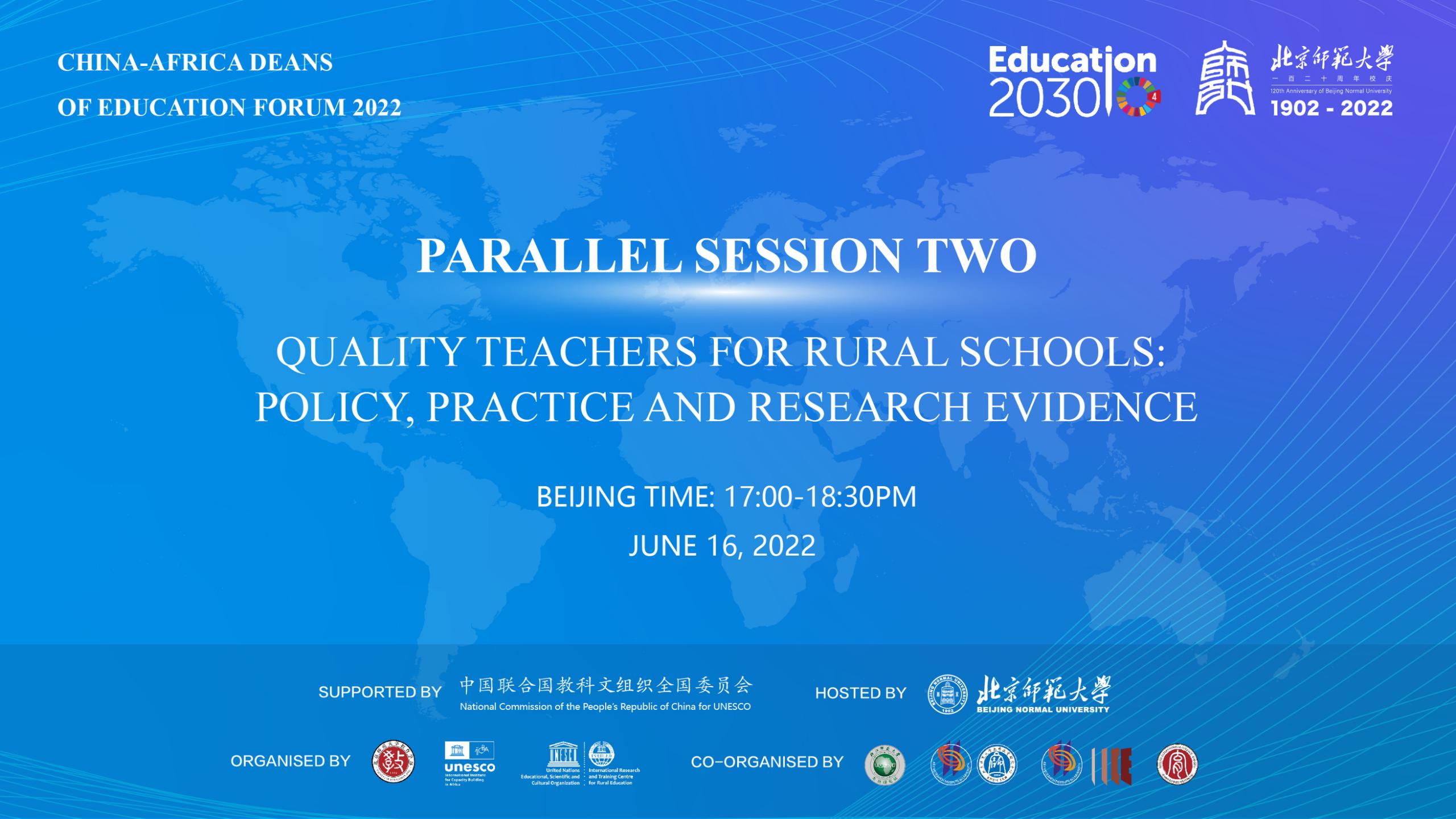
The second parallel session, under the theme of “Quality Training for Rural Teachers: Policy, Practice, Practice and Research Evidence”, was moderated by Dr. Liao Wei, Lecturer at the Centre for Teacher Education at Beijing Normal University. Dr. Tadesse Melesse, Immediate Past Dean of the School of Education and Behavioral Sciences at Bahadur University, introduced the current difficulties in building rural teacher force in Africa, and called for further synergising the achievements of China-Africa educational cooperation, so that China’s valuable experience in the field of teacher education could be used as a reference for Africa. Prof. Wu Zhihui, Dean of the Graduate School at Northeast Normal University, introduced the supplementary mechanism and training system for rural primary school teachers in China, and a long-term and thorough training system for primary school teachers under rural education revitalisation. Mr. Diaby Malick, Specialist in education at UNESCO Abidjan Office, pointed out the deficiencies in the overall design of teacher training in Côte d’Ivoire, and suggested that a modular education method combining online and offline education should be implemented as soon as possible. Prof. Yang Maoqing, Dean of the College of Teacher Education and Vice Dean of FOE at Guangxi Normal University, took Guangxi Normal University as an example, and shared the practice of promoting rural teachers’ professional development in local normal universities in China.
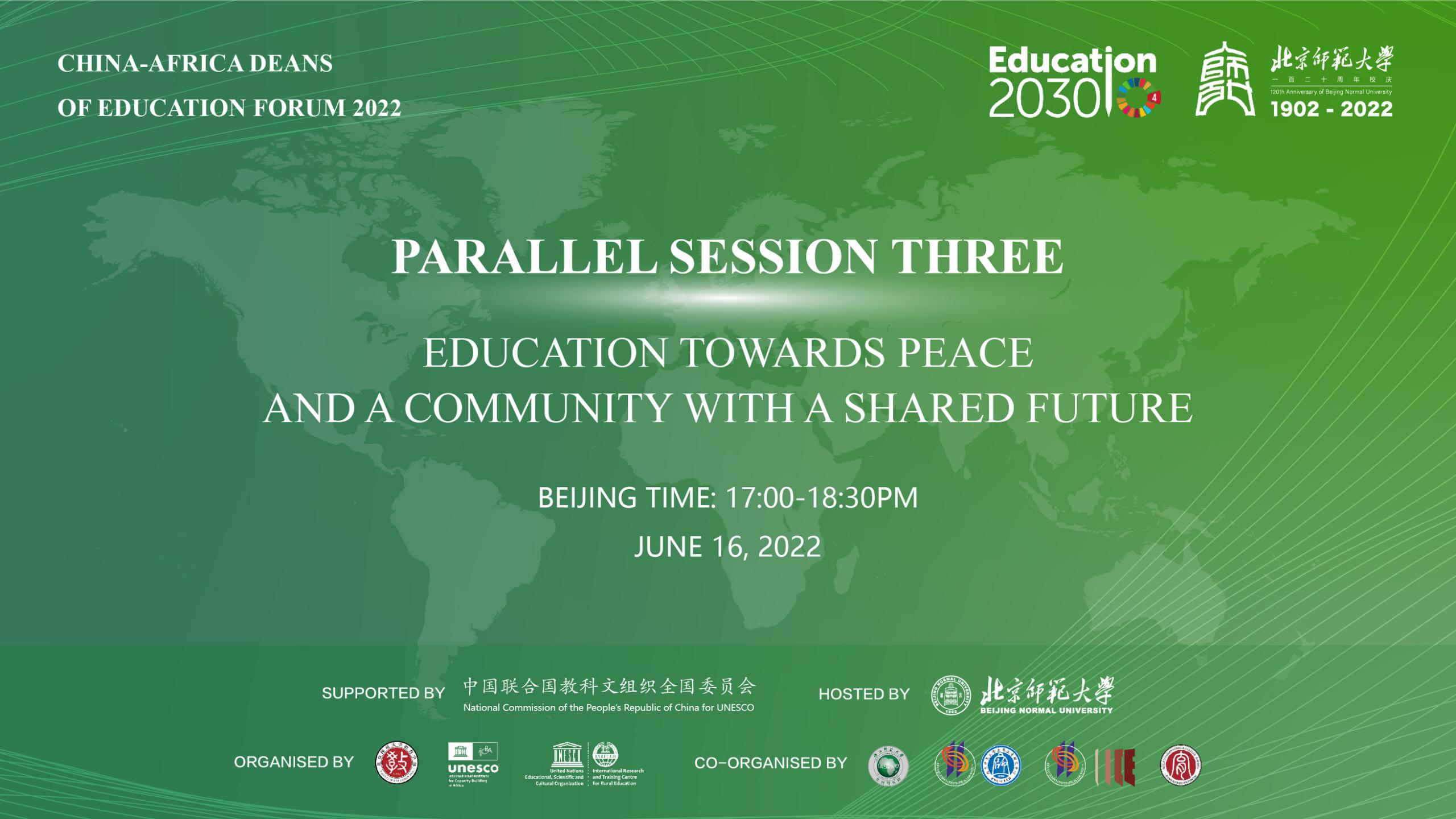
The third parallel session, under the theme of “Education Towards Peace and a Community with a Shared Future”, was chaired by Dr. Josephine Esaete, Senior Lecturer at the School of Education at Makerere University. Prof. Liu Cheng, UNESCO Chair on Peace Studies at Nanjing University, introduced the concept of peace education in China, the curriculum and practice of peace education in primary and secondary schools, and the experience of peace education in teacher training in details. Ms. Mary Kangethe, Director of Education Programme in the National Commission for UNESCO in Kenya, presented the background, process and effect of introducing transformative pedagogy to strengthen peace education and civic education in teacher training institutions, primary and secondary schools in Kenya. Prof. Liu Hongwu, Dean of the Institute of African Studies at Zhejiang Normal University, shared the educational cooperation and exchange projects carried out by the university and African countries, and introduced the African Museum in the university through a video. He pointed out that the key to strengthening China-Africa cooperation is to enhance mutual understanding, especially in the cultural field. Mr. Kansiime Edward, Lecturer at the School of Education at Makerere University, gave a detailed overview of the root causes of school violence and shared his experience of integrating peace education and anti-violence education into teacher education and refugee camp education in Uganda.
In the Q&A session, online audiences actively raised questions and had in-depth discussions with the guest speakers on capacity building in teacher education institutions, distance teacher education, and how to use modern educational technology for educational reform.
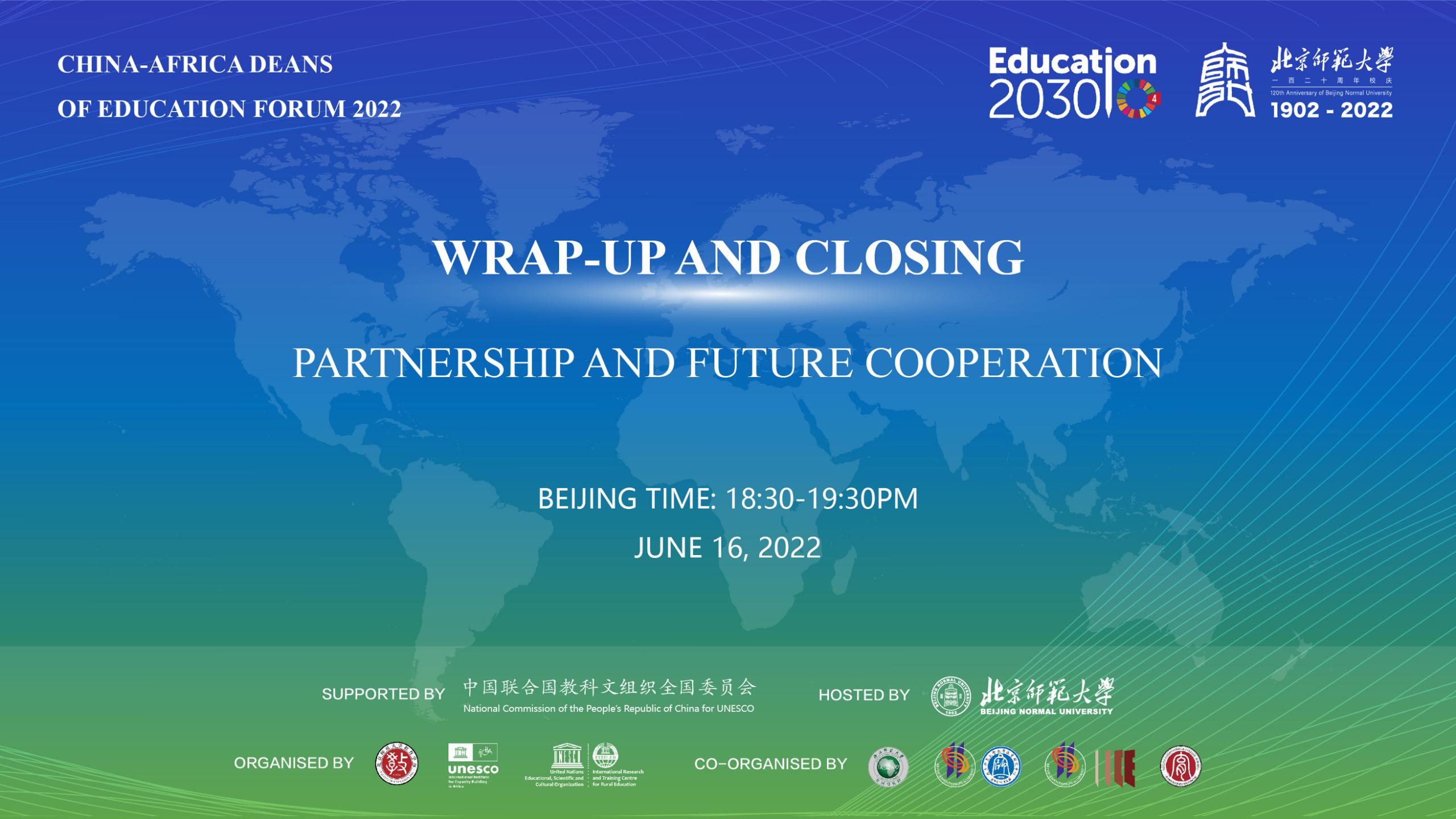
The closing session of the forum was chaired by Dr. Zhao Yuchi, Deputy Director of INRULED. Dr. Ahmed Tlili, Associate Professor and Co-Director of the OER Lab at Smart Learning Institute of Beijing Normal University, Ms. Kevine Uwingabiye, African Union Young Volunteer and Dr. Xiang Xin, Lecturer at the Institute of International and Comparative Education at FOE of Beijing Normal University, Zhuhai, summarised and reported the key points discussed from each parallel session.
During the last session, Dr. Yumiko Yokozeki, Director of IICBA, Dr. Tadesse Melesse, Immediate Past Dean of the School of Education and Behavioral Sciences at Bahadur University, Ethiopia, and Professor Yu Kai, Vice Dean of the FOEat Beijing Normal University, had a roundtable discussion on the vision and actions for future cooperation. All the participants expressed the will to continue and innovate the collaboration between China and Africa in the field of education, strengthen planning, innovate actions, promote China-Africa cooperation in teacher training, educational research, cultural exchanges, etc., accelerate the implementation of the Sustainable Development Goal 4 (SDG4), and make progress in building the China-Africa community with a shared future.
The China-Africa Dean of Education Forum will continue to serve as a communication bridge for policymakers, researchers and practitioners in the field of teacher education in China and Africa, enhance mutual understanding between China and Africa, promote teacher education in China and Africa, and encourage all parties to identify potential cooperation, and follow a sustainable development path of mutual benefit and win-win cooperation.










